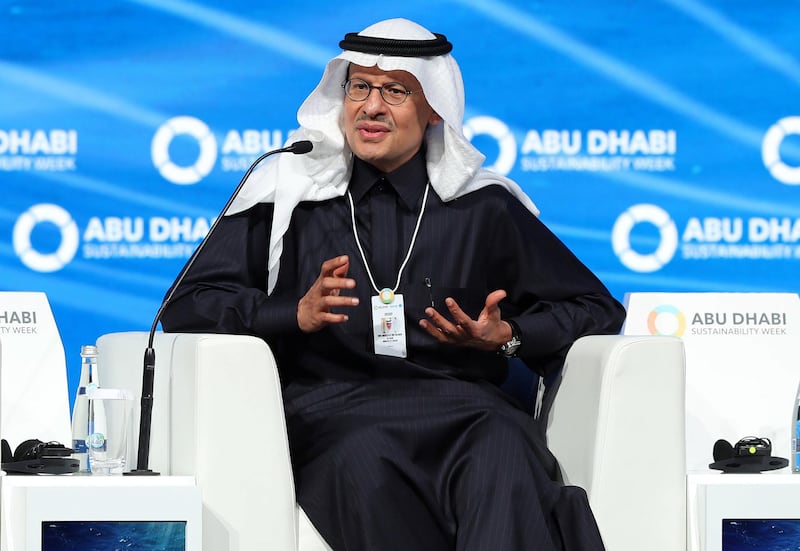Saudi Arabia, the world's largest exporter of oil, will use Fourth Industrial Revolution technology and adopt a circular economy model to pave the way for energy transition, the kingdom's energy minister said.
"We can use the technology of the Fourth Industrial Revolution to observe energy transition and reach goals for reduction of greenhouse emissions, whether it is increasing efficiency and use of renewables like wind and solar power, or the development of new fuel sources like blue and green hydrogen," Prince Abdulaziz bin Salman told the first Saudi Forum for the Fourth Industrial Revolution on Thursday.
Saudi Arabia accounts for 12.5 per cent of all oil production, according to the BP Statistical Review of World Energy 2021.
The kingdom has in recent years made efforts to diversify its economy away from oil revenues and decarbonise its utility systems.
In January, Prince Abdulaziz said Saudi Arabia was aiming to become "another Germany" when it comes to renewables, as the country plans to generate up to 50 per cent of its electricity from clean sources.
The minister highlighted carbon capture and storage as a key area to lessen carbon emissions from the atmosphere.
"This will help us meet climate change goals, but at the same time continue to enjoy economic growth reliability, accessibility, and efficiency that hydrocarbon provides," Prince Abdulaziz said.
While Saudi Arabia plans to make the switch to renewables, it is still on track to expand its capacity to produce oil, for which it seeks less energy-intensive uses.
Saudi Arabia has already launched a renewables programme and is building its first solar and wind power plants. The Gulf country also plans to develop atomic power for civilian use.
A new investment track for the kingdom's Energy Ministry is hydrogen, which is proving popular with Gulf economies looking to rapidly decarbonise their economies and export newer, cleaner forms of energy.
In March, Prince Abdulaziz said the kingdom could start exporting hydrogen by pipeline to Europe, "if the economics allow for it".
Last year, a consortium comprising industrial gases company Air Products, Saudi-based clean energy company Acwa Power and Neom, the planned futuristic megacity in the kingdom’s north-west, agreed on a $5 billion project to produce hydrogen using solar and wind energy.







